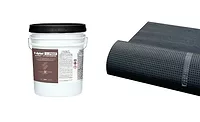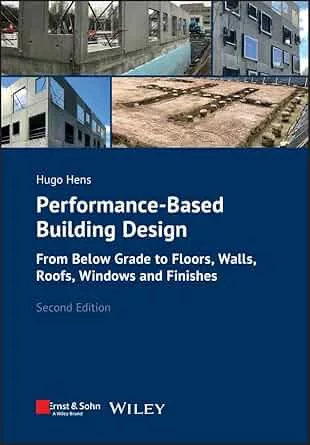Consider Below the Membrane
A building’s roofing system is its first line of defense against harsh weather conditions. All components from the roof deck up work together to deliver a quality, dependable system. While the membrane is the most visible aspect of the roofing system, products installed below affect its strength and endurance. Insulation and cover boards contribute to the overall roof performance and offer individual benefits as well.

A building’s roofing system is its first line of defense against harsh weather conditions. All components from the roof deck up work together to deliver a quality, dependable system. While the membrane is the most visible aspect of the roofing system, products installed below affect its strength and endurance. Insulation and cover boards contribute to the overall roof performance and offer individual benefits as well.
A key component of any roofing system, insulation delivers energy efficiency and savings through its R-value, helping reduce a building’s heating and cooling costs. Measured through industry tests, R-value per inch indicates the thermal resistance to heat flow - essentially the product’s insulating effectiveness. High R-values can translate into both short and long-term savings for building owners. A roofing design professional is faced with numerous insulation options, depending on the roofing membrane and the roofing system requirements.
The various types of rigid board insulation products available for use with a roofing system can be segmented into two categories based on high and low thermal value. The high thermal value product types include expanded polystyrene (EPS), extruded polystyrene (XPS) and polyisocyanurate (polyiso) foam insulation. The lower thermal insulation products are mineral fiber, wood fiber and fiberglass. The four most commonly used insulation products for roofing systems are polyiso, perlite, EPS and wood fiber.
Originally introduced 30 years ago as a more environmentally friendly insulation option due to having the highest R-value, polyiso insulation is used today in more than 65 percent of all new commercial roofing applications, as reported by the National Roofing Contractors Association 2006-07 Market Survey. Polyiso is a rigid foam board insulation with a closed-cell structure that helps resist heat loss or gain from a building, provides a suitable substrate for the roofing membrane, and provides fire and wind resistance to the roofing system. Because it is thermoset, polyiso becomes rigid after manufacturing and can withstand high temperatures without comprising its performance. Polyiso also offers high moisture resistance and is lightweight and easy to handle.
Well-suited for direct application on FM-approved and UL-classified roof deck assemblies, polyiso insulation is compatible with single-ply, asphalt-based and metal roofing systems. Many manufacturers that supply both membranes and insulation offer total roofing system warranties covering both products. Polyiso is also a more energy efficient option with R-values exceeding other common insulation materials. As a result, less polyiso is necessary to achieve the same R-value versus other options, helping to reduce installation time.


High-density polyiso cover boards provide excellent moisture resistance and are compatible with a variety of roofing systems.
Glass-mat gypsum cover boards feature a treated, high-density gypsum core with fiberglass facer embedded on both sides. The inorganic facer does not support mold growth but can cause skin irritation for roofing professionals installing the cover board. Mineral fiber cover boards are manufactured from a variety of raw materials, including mineral wool, perlite, and fiberglass. Wood fiber insulation boards are also commonly used as cover boards in many applications from fully adhered single-ply systems to hot applied asphalt products.

Thinking beyond the roofing membrane and considering the attributes and benefits of insulation and cover board options will contribute to the overall quality and long-term integrity of your next roofing application.

A building’s roofing system is its first line of defense against harsh weather conditions. All components from the roof deck up work together to deliver a quality, dependable system. While the membrane is the most visible aspect of the roofing system, products installed below affect its strength and endurance. Insulation and cover boards contribute to the overall roof performance and offer individual benefits as well.
A key component of any roofing system, insulation delivers energy efficiency and savings through its R-value, helping reduce a building’s heating and cooling costs. Measured through industry tests, R-value per inch indicates the thermal resistance to heat flow - essentially the product’s insulating effectiveness. High R-values can translate into both short and long-term savings for building owners. A roofing design professional is faced with numerous insulation options, depending on the roofing membrane and the roofing system requirements.
The various types of rigid board insulation products available for use with a roofing system can be segmented into two categories based on high and low thermal value. The high thermal value product types include expanded polystyrene (EPS), extruded polystyrene (XPS) and polyisocyanurate (polyiso) foam insulation. The lower thermal insulation products are mineral fiber, wood fiber and fiberglass. The four most commonly used insulation products for roofing systems are polyiso, perlite, EPS and wood fiber.
Originally introduced 30 years ago as a more environmentally friendly insulation option due to having the highest R-value, polyiso insulation is used today in more than 65 percent of all new commercial roofing applications, as reported by the National Roofing Contractors Association 2006-07 Market Survey. Polyiso is a rigid foam board insulation with a closed-cell structure that helps resist heat loss or gain from a building, provides a suitable substrate for the roofing membrane, and provides fire and wind resistance to the roofing system. Because it is thermoset, polyiso becomes rigid after manufacturing and can withstand high temperatures without comprising its performance. Polyiso also offers high moisture resistance and is lightweight and easy to handle.
Well-suited for direct application on FM-approved and UL-classified roof deck assemblies, polyiso insulation is compatible with single-ply, asphalt-based and metal roofing systems. Many manufacturers that supply both membranes and insulation offer total roofing system warranties covering both products. Polyiso is also a more energy efficient option with R-values exceeding other common insulation materials. As a result, less polyiso is necessary to achieve the same R-value versus other options, helping to reduce installation time.

Combined with quality insulation, cover boards
can improve wind uplift performance and help roofing systems achieve better
fire resistance. (Photo courtesy of Firestone Building Products Co.)
Cover Boards
Cover boards protect the insulation during the initial application and throughout the life of the roofing system. Cover board usage in commercial roofing systems is increasing due to its benefits. During the roofing system application, cover boards guard the insulation from construction traffic. Throughout a roof’s life span, cover boards can:- Increase hail and puncture protection. Large hailstones cause significant property damage each year. In hail-prone regions of the United States, some owners mandate cover boards as added protection for their commercial roofing systems.
- Supplement compressive strength. A rigid cover board can prevent damage to the insulation by dispersing the effects of excessive loads, such as heavy snow during winter months.
- Enhance code approvals. Combined with quality insulation, cover boards can improve wind uplift performance and help roofing systems achieve better fire resistance.
- Maintain the R-value. Roofing systems can lose heat through insulation joints and metal fasteners. As a barrier between the insulation joints and the membrane, cover boards minimize heat loss at these points.
- Protect the insulation. During its life span on the roof, the roofing system can be exposed to surface temperatures exceeding 180 degrees Fahrenheit. A cover board can be used in conjunction with ballast or light-colored membranes to minimize the heat load on the system. Cover boards are also recommended with polyiso insulation in low-slope roofing systems for added strength and protection.

When a substrate slope will not permit efficient
drainage, tapered polyiso insulation provides an effective and economical
solution to problems associated with ponded water.
Cover Board Options
Cover board options include high-density polyiso, glass-mat faced gypsum or mineral fiber boards, and they are available in thicknesses ranging from 0.25 to 0.75 inches.High-density polyiso cover boards provide excellent moisture resistance and are compatible with a variety of roofing systems.
Glass-mat gypsum cover boards feature a treated, high-density gypsum core with fiberglass facer embedded on both sides. The inorganic facer does not support mold growth but can cause skin irritation for roofing professionals installing the cover board. Mineral fiber cover boards are manufactured from a variety of raw materials, including mineral wool, perlite, and fiberglass. Wood fiber insulation boards are also commonly used as cover boards in many applications from fully adhered single-ply systems to hot applied asphalt products.

Polyiso
is a rigid foam board insulation with a closed-cell structure that helps resist
heat loss or gain from a building. It provides a suitable substrate for the
roofing membrane and provides fire and wind resistance to the roofing system.
(Photo courtesy of Firestone Building Products Co.)
Selecting the Right Combination
Individual roofing materials must work well together to ensure the integrity of the entire roofing system and maximize the roof’s life cycle. In addition, specified products must work with the roof assembly to maximize product performance and meet industry codes and standards. Installation conditions such as anticipated temperatures, potential foot traffic and weather conditions can affect product selection. Building codes and fire ratings are another important consideration, as well as overall industry requirements. The environmental concerns of the building owner and the desired R-value will also help guide decisions regarding insulation and cover board options.Thinking beyond the roofing membrane and considering the attributes and benefits of insulation and cover board options will contribute to the overall quality and long-term integrity of your next roofing application.
Looking for a reprint of this article?
From high-res PDFs to custom plaques, order your copy today!





